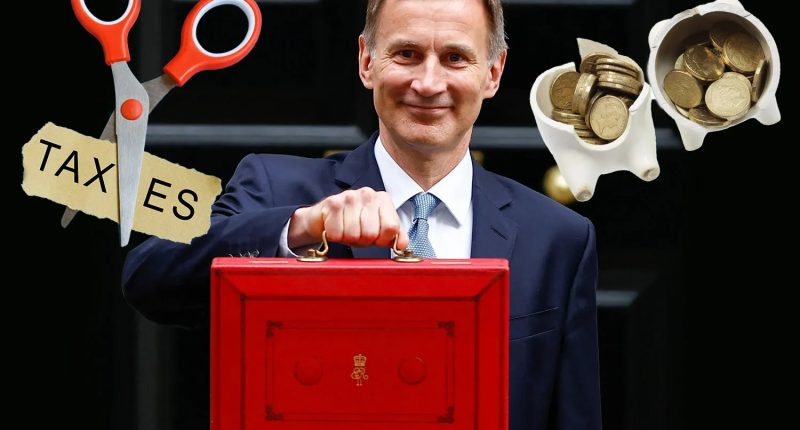MILLIONS of Brits are set to miss out on tax breaks from the Government next year.
Pensioners in particular will lose out on tax cuts worth hundreds of pounds after the government chose to slash taxes paid only by workers.
In its Spring Budget this week, Chancellor Jeremy Hunt announced a fresh 2p cut to National Insurance (NI) from April this year.
The Chancellor confirmed the main rate of NI will be slashed from 10% to 8% from April, following a cut from 12% to 10% in January.
Meanwhile, self-employed people will see their NI rate fall from 8% to 6%.
According to Mr Hunt, this cut will give the average employee an extra £450 a year or £350 for someone self-employed.
MORE ON PENSIONS
However, NI is only paid by people who are working.
It is a tax on your earnings which helps fund benefits like state pension, statutory sick pay, maternity leave and unemployment benefits.
It is separate to income tax, which is paid by everyone who earns an income over a certain threshold, even if they aren’t employed or self-employed.
Millions of people who pay income tax will therefore not benefit from a tax cut to NI – particularly pensioners, as well as landlords and savers.
Most read in Money
Financial firm Quilter calculated that someone earning £15,000 a year who doesn’t pay NI will miss out on £48 a year by NI being cut instead of income tax.
Meanwhile, someone on an annual income of £20,000 who doesn’t work would have saved £148 if income tax was slashed instead.
And someone with a £30,000 annual income will lose out on a tax cut of £348 a year.
Alice Guy, head of pensions and savings at broker Interactive Investor, explained: “Cutting NI is no use to millions of pensioners who are struggling on a low income and face a double whammy of rising costs and higher taxes.”
Worse still, the government has chosen to keep tax thresholds frozen.
The government freezes tax thresholds as a way to raise extra cash without directly increasing taxes, as wage rises caused by inflation drag more people into higher tax brackets.
The Sun revealed in January that this will force around 900,000 pensioners to pay tax on their pension income for the first time this year, as the state pension is rising in April but tax thresholds are staying still.
“Frozen tax thresholds are drawing more pensioners into the tax net and the cut to NI won’t help as they don’t pay it anyway,” Ms Guy added.
How to get help if you’re struggling
Pensioners who are struggling with the cost of living may be able to apply for Pension Credit.
Pension Credit is a benefit which helps those over state pension age (currently 66) and on a low income.
The benefit tops up their weekly income to a minimum of £201.05 for single pensioners and £306.85 for couples, although these figures are set to rise in April.
Your income is worked out taking into account various elements including:
- Your state pension
- Any other pensions you have saved, for instance, workplace or private pension savings
- Most social security benefits, for example, carer’s allowance
- Any savings or investments worth over £10,000
- Earnings from a job
Some pensioners could benefit by topping up their state pension too.
The state pension is set to rise by £901 in April as the pension triple lock remains in place.
The triple lock ensures the state pension rises in line with the highest of either 2.5%, wage growth or inflation.
READ MORE SUN STORIES
If you have any gaps in your NI record, which determines how much state pension you are entitled to, you could boost your pension by making voluntary NI contributions.
To find out if you could benefit, visit: gov.uk/voluntary-national-insurance-contributions/deadlines.
How do I apply for pension credit?
YOU can start your application up to four months before you reach state pension age.
Applications for pension credit can be made on the government website or by ringing the pension credit claim line on 0800 99 1234.
You can get a friend or family member to ring for you, but you’ll need to be with them when they do.
You’ll need the following information about you and your partner if you have one:
- National Insurance number
- Information about any income, savings and investments you have
- Information about your income, savings and investments on the date you want to backdate your application to (usually three months ago or the date you reached state pension age)
If you claim after you reach pension age, you can backdate your claim for up to three months.











